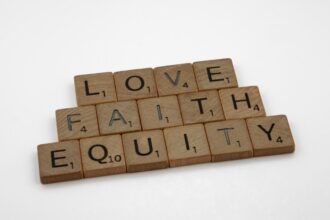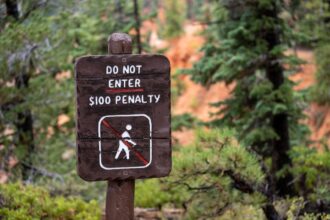Betrayal is a heavy burden to carry, one that can warp the very fabric of our relationships and self-perception. When I first experienced betrayal, it felt as if the ground beneath me had crumbled away, leaving me in a chasm of confusion and pain. The person I trusted most had shattered my faith in humanity, and the emotional fallout was overwhelming.
I found myself grappling with feelings of anger, sadness, and disbelief, all swirling together in a chaotic storm that left me feeling isolated and vulnerable.
As I navigated through the aftermath, I realized that betrayal is not just a personal wound; it reverberates through every aspect of life.
Friends and family often become collateral damage in the wake of such a profound breach of trust. I noticed how my relationships began to shift, as those around me struggled to understand the depth of my pain. The weight of betrayal can feel like a dark cloud, casting shadows over even the brightest moments.
It became clear to me that healing from this experience would require more than just time; it would demand introspection, courage, and a willingness to confront the truth of what had happened.
Key Takeaways
- Betrayal can have a heavy emotional and psychological impact on individuals
- Speaking out about betrayal can be a difficult but empowering decision
- Confronting the truth about betrayal is necessary for healing and moving forward
- Seeking justice can provide a sense of closure and validation for the betrayed individual
- Betrayal can have a significant impact on family dynamics and relationships
The Decision to Speak Out
Choosing to speak out about my experience was not an easy decision. Initially, I felt paralyzed by fear—fear of judgment, fear of further alienation, and fear of reopening wounds that were still raw. However, as time passed, I began to understand that silence would only prolong my suffering.
I realized that sharing my story could be a powerful act of reclaiming my voice and agency. It was a way to transform my pain into something meaningful, not just for myself but for others who might be grappling with similar experiences. When I finally mustered the courage to speak out, it felt liberating yet terrifying.
I reached out to trusted friends and family members, sharing the details of my betrayal and the emotional turmoil that followed. To my surprise, their responses were overwhelmingly supportive. They listened without judgment and offered empathy that helped me feel less alone in my struggle.
Speaking out became a catalyst for healing; it allowed me to process my feelings and begin to untangle the complex web of emotions that had ensnared me for so long.
Confronting the Truth

Confronting the truth was perhaps one of the most challenging aspects of my journey. It required me to face not only the actions of the person who betrayed me but also my own role in the situation. I had to grapple with uncomfortable questions: Why did I ignore the warning signs?
What made me vulnerable to this betrayal? This introspection was painful but necessary; it forced me to confront the reality of my circumstances rather than remain in denial. As I delved deeper into the truth, I discovered layers of complexity that I had previously overlooked.
The betrayal was not merely an isolated incident; it was intertwined with patterns of behavior and dynamics that had existed long before the breach occurred. This realization was both enlightening and disheartening. It illuminated the need for change—not just in my relationships but within myself as well.
Confronting the truth became a pivotal moment in my healing process, allowing me to take ownership of my narrative and begin to rewrite it on my own terms.
Seeking Justice
| Metrics | Data |
|---|---|
| Release Date | 2011 |
| Director | Roger Donaldson |
| Box Office | 12.4 million |
| IMDb Rating | 6.3/10 |
The quest for justice is often fraught with challenges, especially when it comes to personal betrayals. Initially, I felt a strong urge to seek retribution against the person who had hurt me. However, as I reflected on what justice truly meant to me, I realized that it was less about punishment and more about accountability and closure.
I wanted acknowledgment of the pain caused and a commitment to change from the individual involved. I began exploring various avenues for seeking justice—whether through open dialogue with the person who betrayed me or by involving mediators who could facilitate a constructive conversation. Each step required immense courage and vulnerability, as I had to confront not only the other person but also my own fears about how they might respond.
Ultimately, seeking justice became less about vengeance and more about reclaiming my narrative and ensuring that my voice was heard.
The Impact on Family Dynamics
The ripple effects of betrayal extended far beyond my personal experience; they infiltrated my family dynamics in ways I had never anticipated. Relationships that once felt solid began to show cracks as family members took sides or struggled to understand the situation fully. I found myself caught in a web of conflicting loyalties, unsure of how to navigate conversations without reigniting old wounds.
As I worked through these complexities, I realized that open communication was essential for healing within my family. I initiated discussions with loved ones about how they were feeling and encouraged them to express their thoughts without fear of judgment. This process was not easy; it required vulnerability from everyone involved.
However, as we began to share our perspectives, we discovered common ground and a renewed sense of connection. The impact of betrayal on family dynamics can be profound, but through honest dialogue and empathy, we were able to rebuild our relationships stronger than before.
Coping with Guilt and Shame

Guilt and shame are insidious emotions that often accompany betrayal, whether one is the victim or the perpetrator. In my case, I found myself grappling with guilt for not recognizing the signs earlier and shame for allowing myself to be vulnerable in the first place. These feelings weighed heavily on me, creating an internal dialogue that was both critical and relentless.
To cope with these emotions, I sought therapy as a means of unpacking my feelings in a safe space. My therapist helped me understand that guilt is often a natural response to feeling powerless in a situation, while shame can stem from societal expectations about trust and vulnerability. Through our sessions, I learned to reframe my narrative—recognizing that being betrayed does not diminish my worth or value as a person.
This shift in perspective was crucial in allowing me to let go of guilt and shame, paving the way for healing.
Rebuilding Trust
Rebuilding trust after betrayal is a daunting task; it requires patience, understanding, and a willingness to be vulnerable again. As I embarked on this journey, I realized that trust is not merely given; it must be earned through consistent actions over time. The person who betrayed me expressed remorse and a desire to make amends, but words alone were not enough for me to feel secure again.
I set clear boundaries and expectations for our relationship moving forward. This process involved open conversations about what trust meant to both of us and how we could work together to restore it. It was essential for me to communicate my needs while also being receptive to their efforts at rebuilding our connection.
Slowly but surely, we began to navigate this delicate terrain together, learning how to trust each other again one step at a time.
Navigating Legal and Emotional Challenges
The intersection of legal and emotional challenges can be particularly complex when dealing with betrayal. In some cases, seeking legal recourse may be necessary—whether through mediation or formal proceedings—but this path can also exacerbate emotional wounds. As I considered my options, I found myself torn between wanting justice and fearing the potential fallout from pursuing legal action.
I sought guidance from professionals who could help me navigate these challenges effectively. They provided insights into both the legal implications of my situation and strategies for managing my emotional well-being throughout the process. Balancing these two aspects required careful consideration; I had to prioritize self-care while also advocating for myself in a legal context.
Ultimately, navigating these challenges taught me resilience and reinforced the importance of seeking support during difficult times.
Finding Support and Healing
Finding support during this tumultuous period was crucial for my healing journey. Initially, I turned to close friends who had always been there for me; their unwavering support provided comfort during some of my darkest moments. However, as time went on, I realized that expanding my support network could offer new perspectives and insights into my experience.
I began attending support groups where individuals shared their own stories of betrayal and healing. Hearing others articulate their struggles helped me feel less isolated in my pain; it reminded me that I was not alone in this journey. These connections fostered a sense of community that became instrumental in my healing process.
Through shared experiences, we learned from one another and offered encouragement as we navigated our respective paths toward recovery.
Lessons Learned
The journey through betrayal has been fraught with challenges but has also imparted invaluable lessons along the way. One significant lesson is the importance of self-compassion; I learned that it is okay to feel hurt and vulnerable after experiencing betrayal. Acknowledging these feelings rather than suppressing them allowed me to process my emotions more effectively.
Another lesson revolves around the necessity of setting boundaries in relationships. Betrayal often stems from blurred lines or unmet expectations; by establishing clear boundaries moving forward, I can protect myself while fostering healthier connections with others. Ultimately, these lessons have shaped not only how I view relationships but also how I approach life’s challenges with resilience and grace.
Moving Forward
As I reflect on this journey toward healing from betrayal, I recognize that moving forward does not mean forgetting what happened or erasing the pain; rather, it involves integrating those experiences into who I am today.
I have come to embrace vulnerability as a strength rather than a weakness; it allows for deeper connections with others while fostering authenticity within myself.
Moving forward means carrying the lessons learned into new relationships while remaining open to love and trust once again. Though scars may remain from past betrayals, they serve as reminders of resilience—a testament to my ability to rise above adversity and emerge stronger than before.
In the emotional narrative “I Told the Police on My Own Brother,” the complexities of familial loyalty and moral duty are poignantly explored. For readers interested in delving deeper into similar themes of personal conflict and ethical dilemmas, a related article can be found on the same platform. This piece further examines the intricate balance between personal relationships and societal responsibilities. You can read more about these compelling issues by visiting this article on the website.
WATCH NOW! Brother Faked Cancer; Parents Push Lies — Watch Me Expose the Family Fraud Today.
FAQs
What is the article about?
The article discusses a personal experience of someone who made the difficult decision to report their own brother to the police.
What are the reasons for reporting a family member to the police?
There can be various reasons for reporting a family member to the police, including concerns for the safety of oneself or others, witnessing criminal behavior, or feeling a moral obligation to uphold the law.
What are the potential consequences of reporting a family member to the police?
The consequences can vary depending on the nature of the reported behavior and the legal system in place. It could lead to legal action, strained family relationships, and emotional distress.
How can someone cope with the emotional impact of reporting a family member to the police?
Seeking support from friends, family, or a therapist can be helpful in coping with the emotional impact of reporting a family member to the police. It’s important to prioritize self-care and seek professional help if needed.
What are the legal implications of reporting a family member to the police?
The legal implications can vary based on the specific circumstances and the laws in place. It’s important to seek legal advice and understand the potential consequences before making the decision to report a family member to the police.




